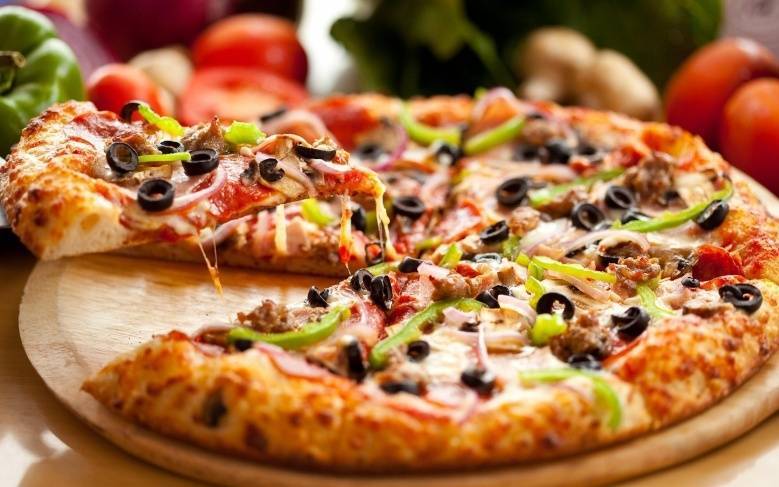Pizza may have a bad reputation for causing weight gain and being unhealthy, but it contains health benefits that were previously overlooked.
According to a recent study published in the magazine Eat This, Not That, consuming pizza can lead to some serious side effects that could harm your health, including weight gain, cancer, and an increased risk of heart disease, skin issues, and stroke. However, nutrition experts say that it's not the pizza itself that poses a risk to your health but rather what you put on top of it. Adding processed meats like pepperoni and sausage, piling on extra cheese, and failing to include low-sodium vegetables on pizza can lead to these medical problems. Conversely, well-made pizza featuring plenty of healthy toppings can be extremely beneficial, according to Dr. Tara Collingwood, a leading nutritionist in Orlando and a certified sports nutritionist in the UK.
Dr. Collingwood stated, "Pizza isn’t really a bad food; it contains a lot of nutritional value, unlike cakes, cookies, and potato chips. I tell many of my athletic clients who burn a lot of calories and sweat that pizza is excellent fuel for them." She also points out that pizza dough is made from grains and contains a good amount of B vitamins. The sauce is based on tomatoes, providing wonderful nutrients like lycopene, vitamin C, and beta-carotene, while the cheese layer is a good source of protein and calcium.
It’s worth noting that Dr. Collingwood’s only warning is that for the average individual, it’s wise to limit the number of slices of pizza consumed and carefully choose your pizza toppings. To make pizza consumption healthier, start by adding more vegetables. "It’s not just about adding some lettuce with a heavy dressing; it's about including more dark leafy greens, tomatoes, carrots, and other veggies topped with a light drizzle of vinegar," Dr. Collingwood advises. She added that this vegetable salad is rich in fiber and can help you maximize the benefits of the pizza you consume. Additionally, you can choose thin crust instead of deep-fried, oil-soaked pizza dough.
Dr. Collingwood also remarked, "You can add as many antioxidant-rich vegetables to your pizza as you want, such as eggplant, mushrooms, spinach, sun-dried tomatoes, and other vegetables you enjoy. If you want to add meat to the pizza, skinless chicken or ham is a better option than sausage and pepperoni, which tend to be higher in fat."




